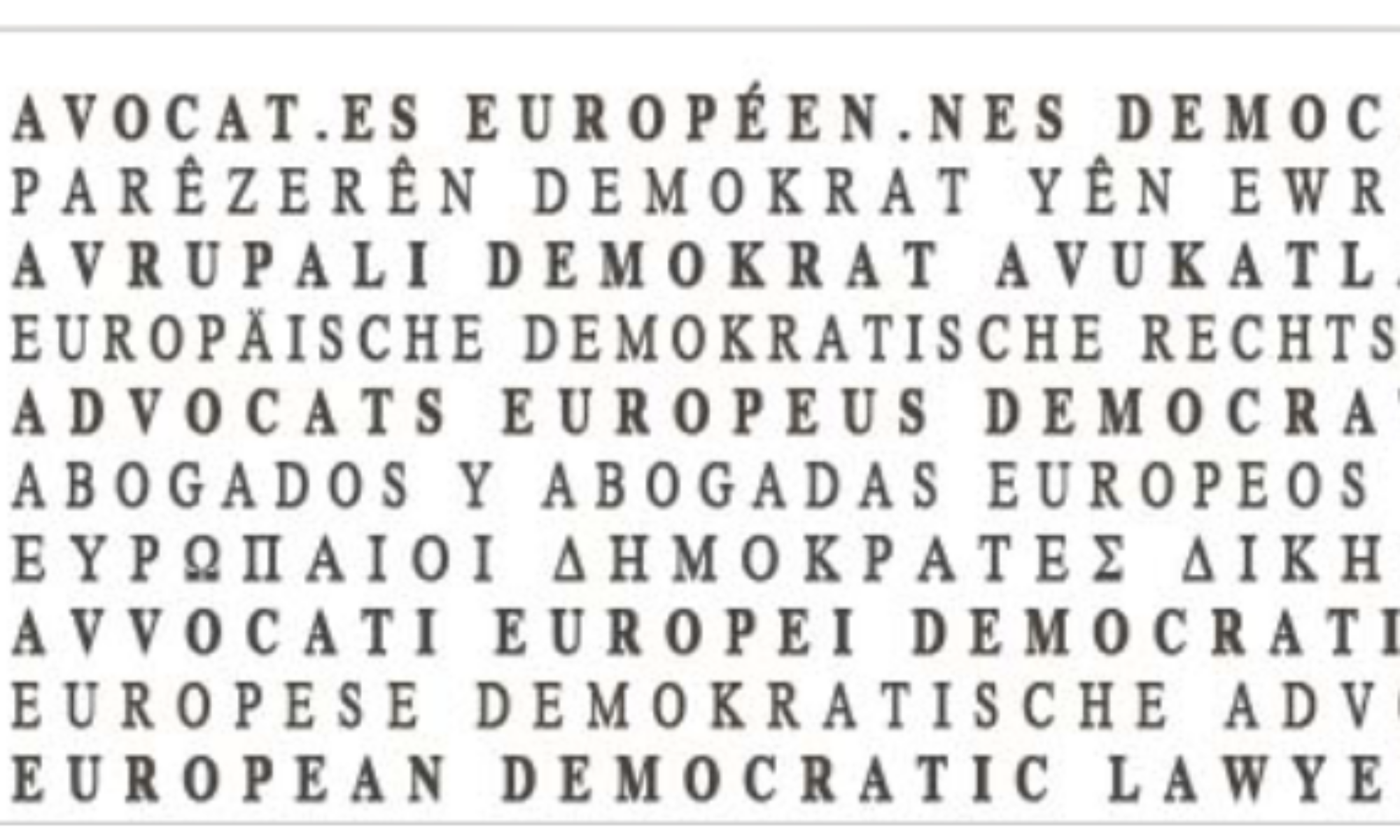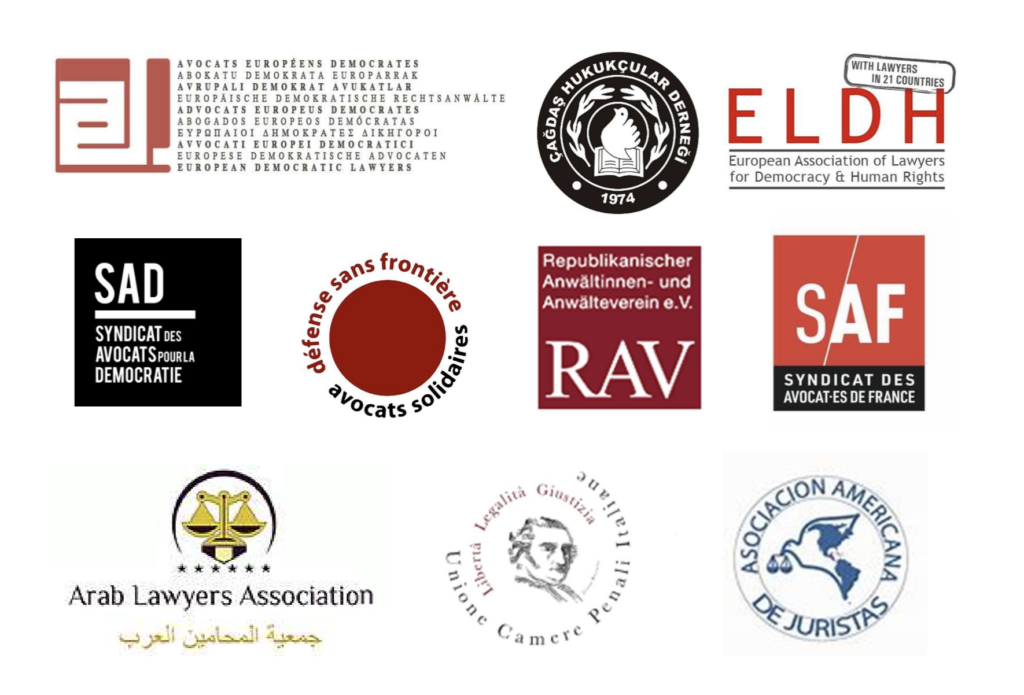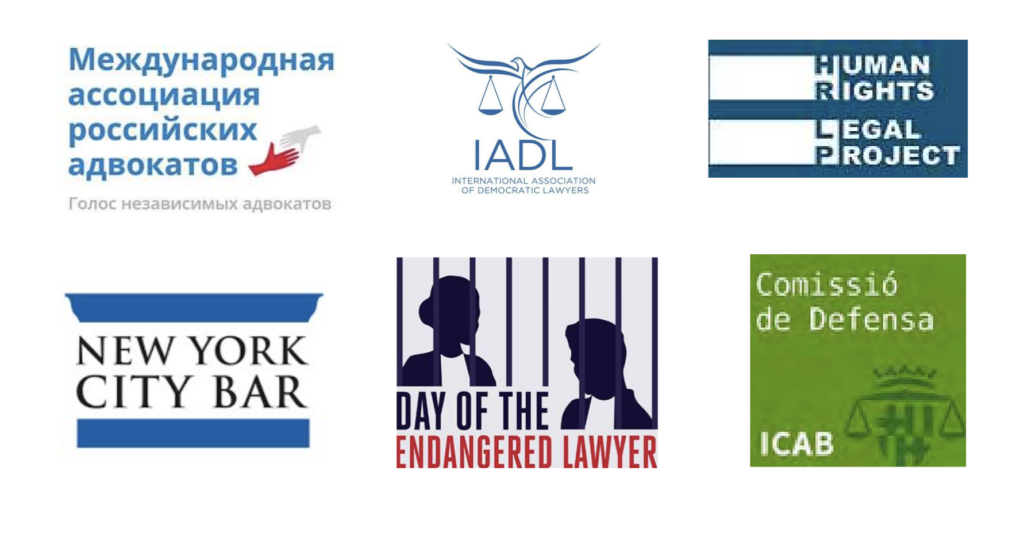Defending human rights is not an act of treason or terrorism. Lawyers, activists, and ordinary citizens who raise their voices in support of dignity, justice and accountability deserve protection, not persecution.
European democratic values are measured by how we protect the voices that challenge power, expose injustice, and defend the rights of the oppressed. In the face of what is increasingly evidence of repression, we call on all democratic institutions, governments, and professionals of law to act — to defend the right to dissent, to protect human rights defenders and lawyers, and to restore respect for rule of law and fundamental freedoms.
Avocats européens démocrates – European Democratic Lawyers (AED -EDL) express profound concern over the escalating criminalization of solidarity with the Palestinian in Gaza, and the systematic targeting of human rights defenders and lawyers. These developments represent a direct assault on democratic freedoms, including the rights to free expression, peaceful assembly, and access to justice.AED – EDL recalls that article 7 of the Convention of the Protection of the Profession of Lawyer guarantees the right of lawyers, individually and collectively, and of professional associations to promote the rule of law and adherence to it, to take part in public discussion on the substance, interpretation and application of existing and proposed legal provisions, judicial decisions, the administration of and access to justice and the promotion and protection of human rights, as well as to make proposals for reforms concerning these matters
Based on article 18 of the UN Basic Principles on the Role of Lawyers, article 6-5 of the abovementioned Convention also indicates that Parties shall ensure that lawyers do not suffer adverse consequences as a result of being identified with their clients or their clients’ cause.
This principle is not merely an ethical expectation ; it also corresponds to binding obligations through human rights treaties to which many states are parties and through relevant jurisprudence.
In recent months these efforts have not only silenced dissent, but targeted human rights defenders, lawyers, journalists, and ordinary citizens. The rule of law, free speech, and due process are under threat, and urgent international action is required.
Targeting of lawyers, legal institutions, and legal infrastructure.
In Gaza, Israel has bombed the headquarters of the Palestine Bar Association in Gaza, destroyed archives, and obliterated the legal infrastructure of justice, including courthouses and the Palace of Justice. At least two-hundred Palestinian lawyers have been killed, while those who survive face the destruction of their homes, offices, and livelihoods.
U.S. sanctions against Al-Haq, the Al Mezan Center for Human Rights (Al Mezan), and the Palestinian Centre for Human Rights (PCHR) – key Palestinian human rights organizations pursuing international criminal accountability for crimes committed in Palestine – directly and adversely interfering with the ability of Palestinian lawyers to carry out their crucial work.
In the West Bank, lawyers continue to endure daily harassment, restrictions. These attacks not only target individuals but also seek to annihilate the very possibility of justice for Palestinians. The AED recalls that the protection of lawyers and judicial institutions is a cornerstone of the rule of law, and their destruction is itself a crime that demands accountability.
This targeting of lawyers and the undermining of the legal profession undermines any remaining institutional justice. AED-EDL recalls that lawyers are essential for upholding rule of law and human rights; repression of their role threatens not only individual defenders but the entire justice
Criminalization of Solidarity and the Assault on Democratic Rights and Freedoms
The criminalization of solidarity and the penalizing those who express support, organize or protest in support of the Palestinian people weakens democratic debate, chills civil society, and threatens core constitutional rights in many European states.
To a different degree across Europe, solidarity movements are facing bans, prosecutions, and legal harassment for public demonstrations or symbols supporting Palestinian circumstances.
Lawyers, human rights defenders, activists, and journalists are facing escalating repression, including detentions, prosecutions under counter-terrorism legislation, bans on organizations, and wide-scale interventions curtailing the freedoms of expression, assembly, and association.
AED strongly protests the systematic campaign in various European countries to silence and punish voices in solidarity with Palestine
AED-EDL calls on:
- States in Europe and beyond to:
⦁ Immediately halt arrests and prosecutions solely for peaceful expression, protest, or solidarity with Gaza. Drop charges against those detained for non-violent expression.
⦁ End or severely limit the use of administrative detention without charge or trial; ensure due process, legal representation, clear charges, and transparency.
⦁ Respect judicial independence and abstain to political pressure on the judiciary aimed at criminalizing legitimate dissent. - International and regional human rights bodies to:
⦁ Monitor and document incidents of criminalization of solidarity, attacks on lawyers, suppression of civil liberties in the Gaza context and in diaspora/solidarity movements.
⦁ Issue urgent recommendations and, where appropriate, rulings or resolutions to protect defenders and ensure compliance with international obligations. - Bar associations and lawyer organizations to
⦁ stand in solidarity with the Palestinian lawyers and bar associations, who are themselves under attack being targeted and continue to endure daily harassment, restrictions;
⦁ to support defenders and lawyers who have been condemned or are facing prosecutions for the sole exercice of the right to protest and freedom of expression in solidarity with Palestinian people;
(4) https://www.index-of-repression.org/

















